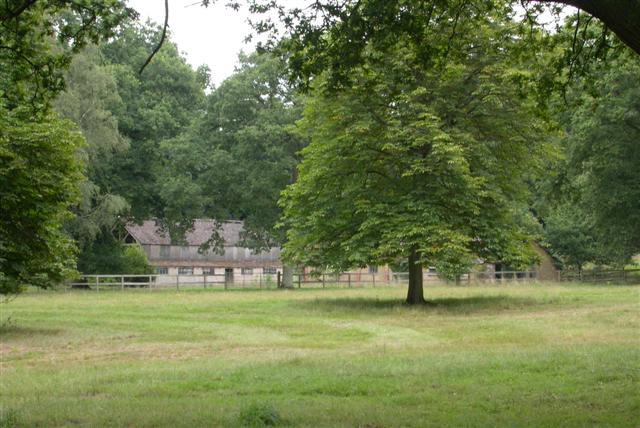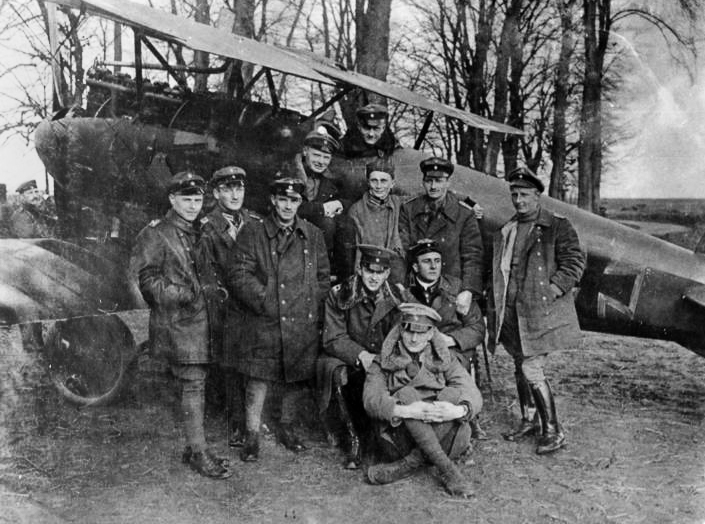|
No Quarter Unledded
''No Quarter'' is a live album by Jimmy Page and Robert Plant, both formerly of English rock band Led Zeppelin. It was released by Atlantic Records on 31 October 1994. The long-awaited reunion between Jimmy Page and Robert Plant occurred on a 90-minute " UnLedded" MTV project, recorded in Morocco, Wales, and London. It was not a reunion of Led Zeppelin, however, as former bassist and keyboardist John Paul Jones was not present. In fact, Jones was not even told about the reunion by his former bandmates. He later commented that he was unhappy about Plant and Page naming the album after "No Quarter", a Led Zeppelin song which was largely his work. In addition to acoustic renditions, the album features a reworking of Led Zeppelin songs featuring a Moroccan string band and Egyptian orchestra supplementing a core group of rock and roll musicians, along with four Middle-Eastern and Moroccan-influenced songs: "City Don't Cry", "Yallah" (or "The Truth Explodes"), "Wonderful One", and ... [...More Info...] [...Related Items...] OR: [Wikipedia] [Google] [Baidu] |
Page And Plant
Page and Plant (also known as Jimmy Page & Robert Plant) was an English rock band active between 1994 and 1998. The group consisted of guitarist Jimmy Page and vocalist Robert Plant (both formerly of English rock band Led Zeppelin), accompanied by bassist Charlie Jones and drummer Michael Lee. Formed in 1994 for an MTV Unplugged reunion, Page and Plant released the platinum-selling live album ''No Quarter'', featuring both new material and middle eastern-influenced covers of classic Led Zeppelin songs. Following the success of the live album, they embarked on a world tour featuring a full orchestra. In 1998, Page and Plant released '' Walking into Clarksdale'', comprising entirely new material and featuring the Grammy Award-winning single " Most High". Following the album's release, they embarked on a second world tour before disbanding at the end of 1998. The band reunited for a final performance in 2001. History The initial plans for a reunion were made in 1993, with discus ... [...More Info...] [...Related Items...] OR: [Wikipedia] [Google] [Baidu] |
No Quarter (song)
"No Quarter" is a song by Led Zeppelin that appears on their 1973 album ''Houses of the Holy''. It was written by John Paul Jones, Jimmy Page, and Robert Plant. The song became a centerpiece at all Led Zeppelin concerts thereafter, until their final tour. It appears in both the film versions and both live album versions of ''The Song Remains the Same'', released in 1976 and expanded in 2007. It appeared once more in 1994 on Page and Plant's reunion album as the title track. It also appears on Led Zeppelin's 2012 live album ''Celebration Day'', which documented their 2007 reunion performance at the O2 Arena in London. It was re-released on the deluxe edition of ''Houses of the Holy''. Overview Although an early version was recorded at the ''Led Zeppelin IV'' album sessions, "No Quarter" was recorded in 1972 at Island Studios, London. Andy Johns engineered the track and mixed it at Olympic Studios, London. The version that made it onto the album evolved out of a faster version ... [...More Info...] [...Related Items...] OR: [Wikipedia] [Google] [Baidu] |
Led Zeppelin IV
The untitled fourth studio album by the English rock band Led Zeppelin, commonly known as ''Led Zeppelin IV'', was released on 8 November 1971 by Atlantic Records. It was produced by guitarist Jimmy Page and recorded between December 1970 and February 1971, mostly in the country house Headley Grange. The album is notable for featuring " Stairway to Heaven", which has been described as the band's signature song. The informal setting at Headley Grange inspired the band, allowing them to try different arrangements of material and create songs in various styles. After the band's previous album ''Led Zeppelin III'' received lukewarm reviews from critics, they decided their fourth album would officially be untitled and would be represented instead by four symbols chosen by each band member, without featuring the name or any other details on the cover. Unlike the prior two albums, the band was joined by some guest musicians, such as vocalist Sandy Denny on "The Battle of Evermore", a ... [...More Info...] [...Related Items...] OR: [Wikipedia] [Google] [Baidu] |
The Battle Of Evermore
"The Battle of Evermore" is a folk duet sung by Robert Plant and Sandy Denny, featured on Led Zeppelin's untitled 1971 album, commonly known as ''Led Zeppelin IV''. The song's instrumentation features acoustic guitar and mandolin playing, while the lyrics allude to J. R. R. Tolkien's fantasy novel ''The Lord of the Rings''. Writing and production Writing The song was written by Jimmy Page and Robert Plant at Headley Grange while Page was experimenting on John Paul Jones's mandolin. Page explained in 1977 that Battle of Evermore' was made up on the spot by Robert lantand myself. I just picked up John Paul Jones's mandolin, never having played a mandolin before, and just wrote up the chords and the whole thing in one sitting." Allusions to ''The Lord of the Rings'' The song, like Led Zeppelin's "Ramble On" and "Misty Mountain Hop", makes references to ''The Lord of the Rings'' by J. R. R. Tolkien, with "The Dark Lord rides in force tonight and time will tell us all" in line 4, ... [...More Info...] [...Related Items...] OR: [Wikipedia] [Google] [Baidu] |
Since I've Been Loving You
"Since I've Been Loving You" is a song by the English rock band Led Zeppelin, released in 1970 on the album ''Led Zeppelin III''. Overview "Since I've Been Loving You" was one of the first songs prepared for the ''Led Zeppelin III'' album. The song was recorded live in the studio with very little overdubbing. It was reportedly the hardest to record. John Paul Jones played Hammond organ on the song, using the bass pedals instead of a bass guitar.Chris Welch (1994) ''Led Zeppelin'', London: Orion Books. , p. 53. John Bonham's preferred drum pedal, the Ludwig Speed King model 201, squeaks during the recording, and has been called the "Squeak King". The opening and closing lyrics of "Since I've Been Loving You" are nearly identical to the 1968 Moby Grape song " Never". The song is a slow blues in the key of C minor. Reception and accolades In a contemporary review of ''Led Zeppelin III'', Lester Bangs of ''Rolling Stone'' wrote that the track "represents the obligatory slow and le ... [...More Info...] [...Related Items...] OR: [Wikipedia] [Google] [Baidu] |
Led Zeppelin III
''Led Zeppelin III'' is the third studio album by the English rock music, rock band Led Zeppelin, released on 5 October 1970. It was recorded in three locations. Much of the work was done at Headley Grange, a country house, using the Rolling Stones Mobile Studio. Additional sessions were held in more traditional recording studios, such as Island Studios and Olympic Studios in London. As with the prior album, the band eschewed the use of guest musicians, with all music performed by band members Robert Plant (vocals), Jimmy Page (guitars), John Paul Jones (musician), John Paul Jones (bass, keyboards), and John Bonham (drums). The range of instruments played by the band was greatly enhanced on this album, with Jones especially emerging as a talented multi-instrumentalist, playing a wide range of keyboard and stringed instruments, including various synthesizers, mandolin and double bass, in addition to his usual bass guitar. As with prior albums, Page served as producer on the album, ... [...More Info...] [...Related Items...] OR: [Wikipedia] [Google] [Baidu] |
Houses Of The Holy
''Houses of the Holy'' is the fifth studio album by the English rock band Led Zeppelin. It was released on 28 March 1973 by Atlantic Records. The album benefited from two band members installing studios at home, which allowed them to develop more sophisticated songs and arrangements and expand their musical style. Several songs subsequently became fixtures in the group's live set, including " The Song Remains the Same", "The Rain Song" and "No Quarter". Other material recorded at the sessions, including the title track, was shelved and released on the later albums ''Physical Graffiti'' and ''Coda''. All instruments and vocals were provided by the band members Robert Plant (vocals), Jimmy Page (guitar), John Paul Jones (bass, keyboards), and John Bonham (drums). The album was produced by Page and mixed by Eddie Kramer. The cover was the first for the band to be designed by Hipgnosis and was based on a photograph taken at Giant's Causeway in Northern Ireland. Although critical res ... [...More Info...] [...Related Items...] OR: [Wikipedia] [Google] [Baidu] |
Led Zeppelin II
''Led Zeppelin II'' is the second studio album by the English rock band Led Zeppelin, released on 22 October 1969 in the United States and on 31 October 1969 in the United Kingdom by Atlantic Records. Recording sessions for the album took place at several locations in both the United Kingdom and North America from January to August 1969. The album's production was credited to the band's lead guitarist and songwriter Jimmy Page, and it was also Led Zeppelin's first album on which Eddie Kramer served as engineer. The album exhibited the band's evolving musical style of blues-derived material and their guitar riff-based sound. It has been described as the band's heaviest album. Six of the nine songs were written by the band, while the other three were reinterpretations of Chicago blues songs by Willie Dixon and Howlin' Wolf. One single, "Whole Lotta Love", was released outside of the UK (the band would release no UK singles during their career), and peaked as a top-ten single in ove ... [...More Info...] [...Related Items...] OR: [Wikipedia] [Google] [Baidu] |
Thank You (Led Zeppelin Song)
"Thank You" is a song by the English rock band Led Zeppelin from their second studio album '' Led Zeppelin II'' (1969). It was written by Robert Plant and Jimmy Page, and produced by Page. Composition and recording "Thank You" is notated in the key of D major in common time with a tempo of 76 beats per minute. The song features a Hammond organ, played by John Paul Jones, which fades into a false ending before concluding with a crescendo roughly ten seconds later. For the recording of this track, Page played on a Vox 12-string guitar.Interview with Jimmy Page '''' magazine, 1993 Reception In a retrospective review of ''[...More Info...] [...Related Items...] OR: [Wikipedia] [Google] [Baidu] |
Presence (album)
''Presence'' is the seventh studio album by the English rock band Led Zeppelin, released by Swan Song Records on 31 March 1976. While the record was a commercial success, reaching the top of both the British and American album charts, and achieving a triple-platinum certification in the United States, it received mixed reviews from critics and was the lowest-selling studio album by the band while they were still active. The album was written and recorded in the last months of 1975, during a difficult time in the band's history. Singer Robert Plant was recuperating from serious injuries he had sustained earlier that year in a car accident; this led to tours being cancelled and the band booking studio time to record ''Presence'' instead. The entire album was completed in a few weeks, with guitarist and producer Jimmy Page putting in several long shifts to complete recording and mixing. The title came from the strong presence the group felt as they worked together. The LP's artwork f ... [...More Info...] [...Related Items...] OR: [Wikipedia] [Google] [Baidu] |
Nobody's Fault But Mine
"It's Nobody's Fault but Mine" or "Nobody's Fault but Mine" is a song first recorded by gospel blues artist Blind Willie Johnson in 1927. It is a solo performance with Johnson singing and playing slide guitar. The song has been interpreted and recorded by numerous musicians in a variety of styles, including Led Zeppelin on their 1976 album '' Presence''. Lyrics and composition "It's Nobody's Fault but Mine" tells of a spiritual struggle, with reading the Bible as the path to salvation, or, rather, the failure to read it leading to damnation. Johnson was blinded at age seven when his stepmother threw a caustic solution and his verses attribute his father, mother, and sister with teaching him how to read. The context of this song is strictly religious. Johnson's song is a melancholy expression of his spirit, as the blues style echoes the depths of his guilt and his struggle. An early review called the song "violent, tortured and abysmal shouts and groans and his inspired guit ... [...More Info...] [...Related Items...] OR: [Wikipedia] [Google] [Baidu] |
Guitar World
''Guitar World'' is a monthly music magazine for guitarists – and fans of guitar-based music and trends – that has been published since July 1980. ''Guitar World'', the best-selling guitar magazine in the United States, contains original artist interviews and profiles, plus lessons/columns (with tablature and associated audio files or videos), gear reviews, news and exclusive tablature (for guitar and bass) of three songs per issue. The magazine is published 13 times per year (12 monthly issues and a holiday issue) by Future plc. Damian Fanelli has been Guitar World’s Editor-in-Chief since June 2018. History Stanley Harris, a New York magazine publisher, launched ''Guitar World'' magazine in July 1980. The magazine’s debut issue featured bluesman Johnny Winter on the cover and included pieces on the Allman Brothers Band, George Thorogood and pedal steel guitars. As former Editor-in-Chief Brad Tolinski wrote in the magazine’s 40th-anniversary issue, “It was a dece ... [...More Info...] [...Related Items...] OR: [Wikipedia] [Google] [Baidu] |



.jpg)
